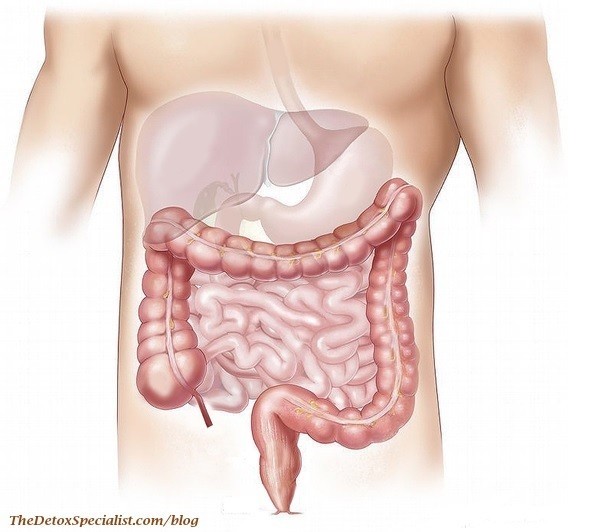Colorectal cancer is one of the most common cancers in the USA, and around 1 in 25 adults will develop colon or rectal cancer during there lifetimes. However, as with most diseases, there are certain lifestyle changes that you can make in order to be less susceptible to colon cancer, which will be discussed within the article.

Get screened for colorectal cancer
Colorectal screenings are tests that can find cancer, hopefully before any symptoms develop. More specifically, these screenings are searching for growths on the colon or rectum, which are also known as polyps. These polyps, if left, can turn into cancer, which is why getting screenings early can be hugely beneficial in the fight against colon cancer, as this is when treatments are more likely to be successful.
It is recommended by the American Cancer Society to start testing at the age of 45, with those who are considered to be at average risk, due to family history or lifestyle. If you feel as though this might be you, speak to a health care professional, and they will be able to assist you.
Maintain a healthy body weight
It has been found that being overweight or obese, and therefore carrying more weight around your waist can increase your risk of bowel cancer. According to Protein Powder, in the UK alone, around 11% of bowel cancers are linked to individuals who are not considered to have a healthy body weight.
In order to establish whether you’re at what is considered a healthy body weight, you can measure your Body Mass Index. Although this isn’t the most accurate way, it is a quick and easy method to find out quickly where you stand on the BMI chart. Maintaining a healthy body weight could be key when it comes to the prevention of colon or bowel cancer.
Related reading: How Detox Diet Carbs can help you Lose Weight
Don’t Smoke
It is a well known fact in the modern day that smoking is bad for your health, in more ways than one. It is estimated that around 7% of colon cancer cases within the UK have a correlation with tobacco smoking, and it is also proven that colon and bowel cancer risk increases with the number of cigarettes that are smoked each day.
It is also well known that smokers are more likely to develop the polyps that were discussed earlier, which have the potential to turn into cancer. All of the signs are there suggesting that smoking can be detrimental to your health, so quitting smoking as soon as possible is vital when trying to reduce the risk of colon cancer.
Related reading: Simple Lung Detox Tips after Smoking Cessation
Get enough calcium and vitamin D
It is also well known that having a sufficient amount of both calcium and vitamin D in your diet can help the battle against colon cancer. The recommended daily amounts are around 1,000 to 1,200 milligrams of calcium per day, and around 1,000 units of vitamin D per day. In those at risk groups, such as elderly people and people who are overweight, it is recommended that a vitamin D deficiency test is taken, which may help to spot the signs of colon cancer early.
Related reading: Yogurt : A Powerful Ally for your Detox Diets
Drinking cow’s milk is also recommended, at it may have a protective effect against colorectal cancer. As mentioned already, having a higher intake of calcium, which is extremely prevalent within milk, is associated with a decreased risk of developing colon cancer, compared to those who intake little to no liquid cow’s milk.
Relying on cheese as a main intake of calcium may have an adverse effect, due to the concentrated saturated fat content, so cow’s milk is the best bet for reducing the risk of colon cancer.
Related reading: Is Milk Kefir a good Detox Food?
Get enough fibre
Getting sufficient fibre in our diets can help to combat colon cancer. More specifically, the benefits of eating plant-based foods suggest that there is a protective element against colon cancer. Fibre is a non-digestible plant material, and as a result arrives at the colon intact. This means that fibre is more likely to trap dietary carcinogens in the stool, flushing them out of the body before they cause any harm.
Fibre also fuels the resident bacteria that lives in our guts, which helps to produce by-products called short chain fatty acids which help to prevent colon cancer.
Related reading: The Return Of Fiber Trend is good for Bowel Cleansing
Eat more fruits and non starchy vegetables
Cutting back bacon and red meat is also well known to aid in the reduced risk of colon cancer. Replacing these with fruits and non starchy vegetables, such as beets, peppers, asparagus, tomatoes and carrots, will also increase your chances of avoiding colon cancer. This is due to their antioxidant content and fibre, as we have mentioned already, and research suggests that people with diets containing larger amounts of fruits and non starchy vegetables have a lower risk at developing colon cancer.
Related reading: New Wave Fruit and Vegetable Detox
Stay physically active
A sedentary lifestyle is also generally associated with an increased risk of certain cancers, not only due to the likely increase of weight, but also the general health benefits that are associated with physical activity. Research has shown that adults who are physically active have up to a 50% reduced risk of developing colon cancer, so maintaining physical activity is vital.
Related reading: 5 Reasons why Outdoor Exercise is great for Your Health



